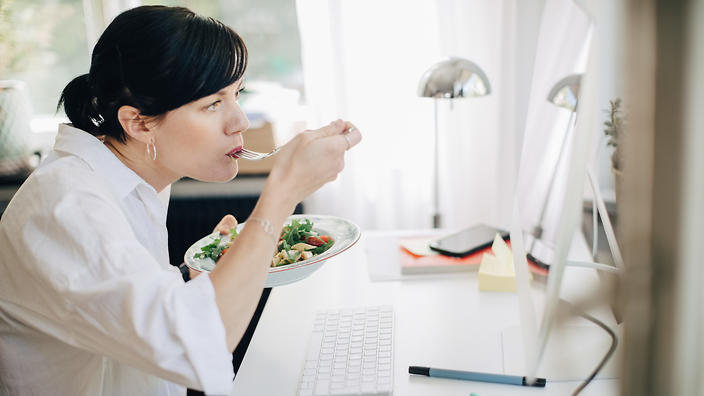Learn about brain health and nootropics to boost brain function
What you should eat to work better under pressure

As we near the end of the year, work-based pressure is certainly starting to build.
Whether you’re a student studying for final exams or a worker slogging it out to finish all the tasks that need to be completed right before the festive season, high-pressured environments can prove incredibly stressful.
“No matter what sort of work you do, everyone needs to fuel their bodies so they can maximise their ability to focus, concentrate and stay calm,” says Jane Freeman, Accredited Practising Dietitian and spokesperson for the Dietitians Association of Australia.
The big question is how do you do that?
Here are Freeman’s dietary tips on how to eat your way to work at your best level.
Eat to sustain mental clarity
“Glucose is our body’s petrol and certainly our brain’s petrol,” Freeman explains. “So our ability to focus and concentrate depends on our ability to maintain a good supply of glucose energy that is consistent and even throughout the day.”
To provide our brain with a constant flow of glucose energy, Freeman says we need to eat low GI sources of carbohydrate foods like wholegrains, vegetables, fruits, lentils and pulses.
“That includes foods like hummus, baked beans, lentil soup, lean meats and low-fat dairy foods. These are the sort of foods that move glucose more slowly into our blood and produce a nice, even flow of glucose throughout the body and brain.”
Freeman adds that people with diabetes or with a genetic predisposition for type 2 diabetes – individuals aged over 35 from an Aboriginal or Torres Strait Islander, Pacific Island, Indian subcontinent or Chinese cultural background –should also be aware of the need to eat regular, small meals that are low-fat and low-GI to maintain blood glucose levels.
“Maintaining a basic wholefood diet that is plant-based, high in fibre and low-GI will help to support people from every culture.”
Maximise your brainpower
Omega-3 fatty acids, like DHA (docosahexaenoic acid) and EPA (eicosapentaenoic acid), are found in fish and other kinds of seafood, which are great for brain function.
“Research has shown these fats support improved concentration, learning and an ability to focus. So try to include oily fish – like salmon and mackerel – into your diet a couple of times a week.”
But don’t think having fish the night before a big meeting will help do much to boost your brainpower.
“If you’ve left eating fish to the night before your big day, you might have left it too late. A slow and steady healthy dietary approach will ideally win the race. Eating oily fish needs to be part of a healthy dietary strategy over the longer term.”
See a GP about what’s causing your brain fog
If you suffer from brain fog, it could also be a symptom of an underlying health issue like an underactive thyroid or a nutritional deficiency like a lack of vitamin B12 or iron.
It is important to identify whether there is a problem early on and pinpoint the cause/solution by seeing a GP.
Eat with family and friends
Feeling the pressure to prepare for an important workplace or educational event could see you going for hours at your desk, without any timeout.
Rest assured that break times are encouraged for you to refresh and recharge.
“Food can be a positive way to enjoy time out, which we all need to have no matter how busy we are. We all tend to do better when we have a break and walk away from our desk.
“Use your meal times to have a break to get off the screen. Eat with your family and friends and wind down.”
Avoid too much caffeine and processed foods
Steer clear of consuming high-calorie and processed carbohydrate foods like takeaway meals, soft drinks, chocolate, cakes and lollies.
Freeman also advises people to avoid drinking too much caffeine, which can produce a short-term stimulatory effect.
“Of course, of you are over consuming caffeine, it will affect your sleeping. And if you are already feeling anxious then of course a sleepless night is the last thing you need. So be cautious with caffeine and know your tolerance level.”
Click here to view full article